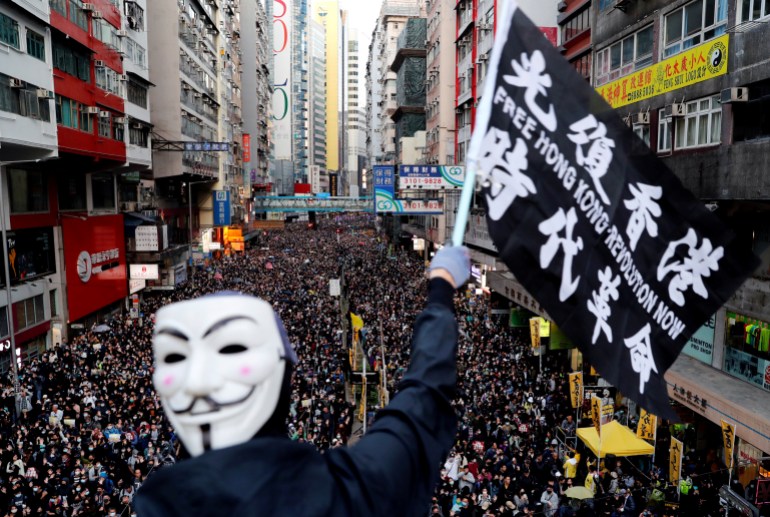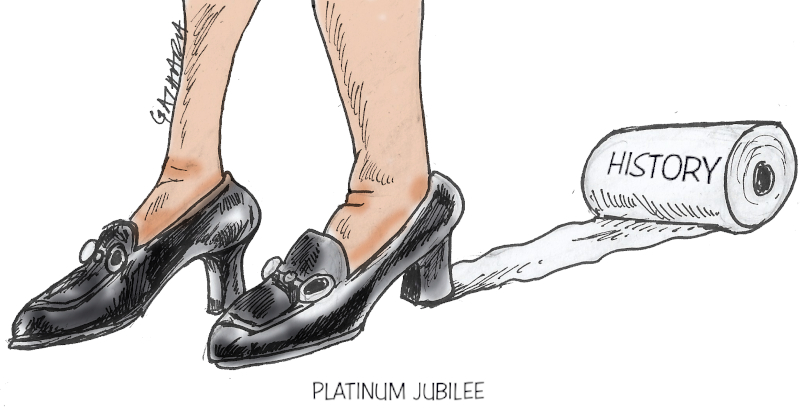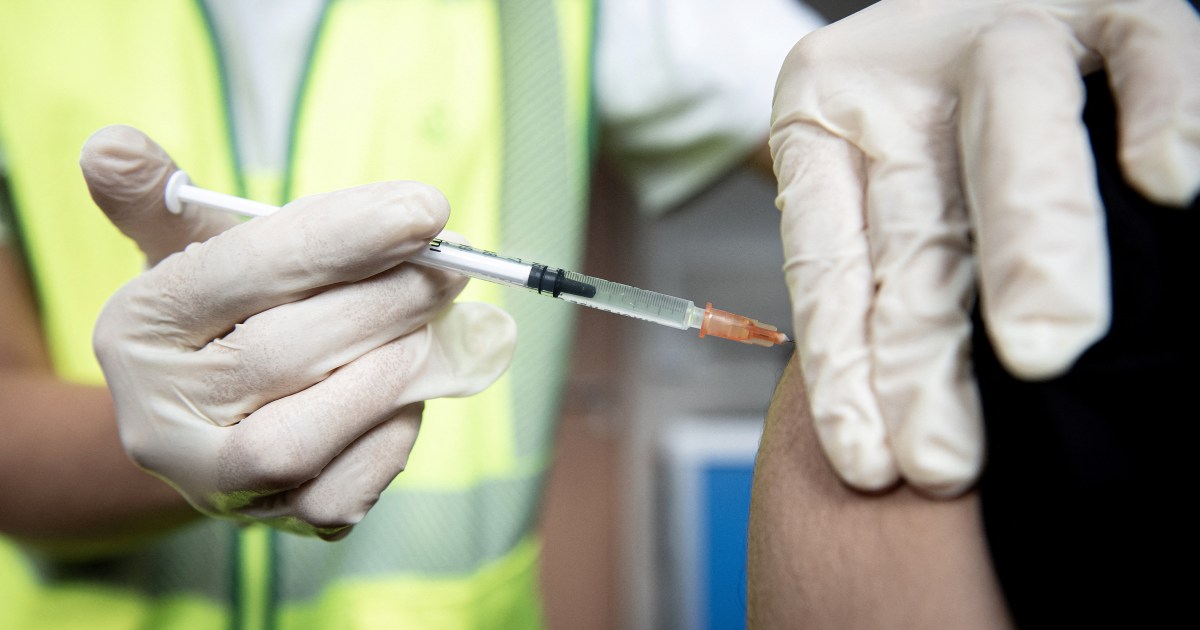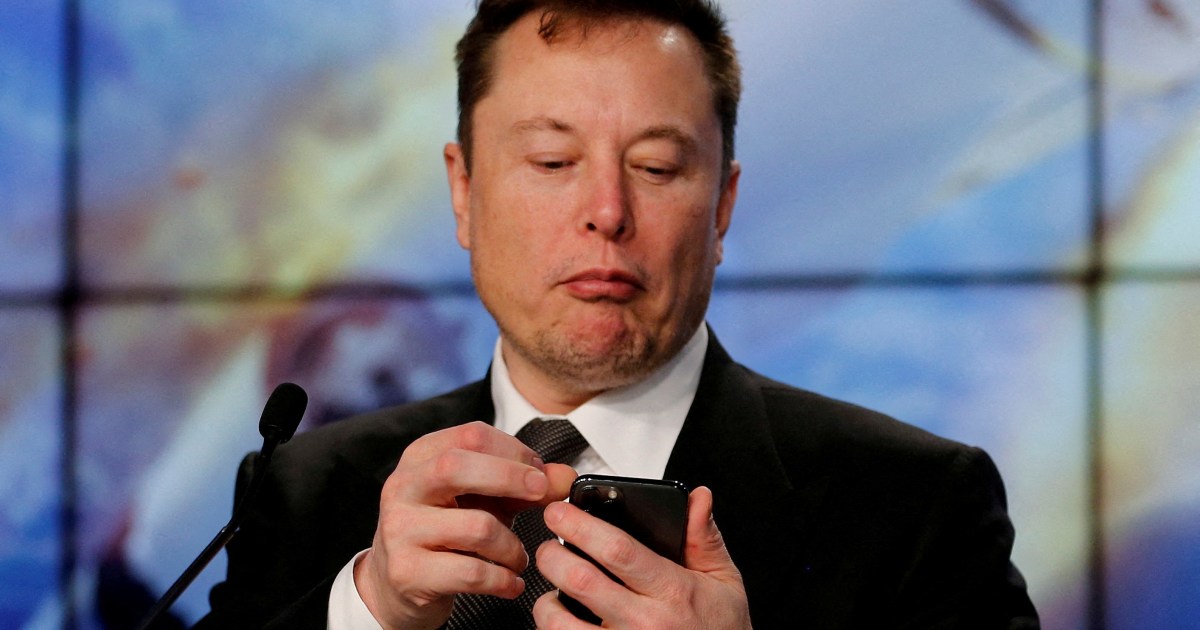Hong Kong under heavy security as city marks handover
Chinese leader Xi Jinping arrived in city on Thursday to attend anniversary and swear in new leader John Lee.
Hong Kong police were out in force on Friday as the former British colony prepared to mark 25 years since its return to China in a ceremony presided over by Chinese President Xi Jinping.
Xi arrived in Hong Kong on Thursday to attend the anniversary and swear in new pleader John Lee, a former security chief chosen in May by a small committee of electors controlled by Beijing.
Celebrations were muted during an annual flag raising ceremony in the morning as the city was hit by heavy rain and strong winds from a nearby typhoon.
Xi did not attend the early morning event but spent the night across the border in Shenzhen. The Chinese leader is expected to return later on Friday to swear in Lee.
The trip is Xi’s first outside mainland China since the COVID-19 pandemic began and his first trip to Hong Kong since 2017, when he swore in the city’s outgoing leader Carrie Lam.
Signs proclaiming a new era of “stability, prosperity, and opportunity” have been erected around Hong Kong for the occasion, but many residents believe the city is losing its distinct way of life as Beijing cracks down on almost all displays of dissent.
Under the terms of Hong Kong’s return to Chinese sovereignty in 1997, Beijing promised to grant the city a high degree of autonomy and preserve political rights and freedoms not found on the mainland until at least 2047 – an arrangement known as “one country, two systems.”
But since the imposition of a draconian national security law in June 2020, authorities have practically wiped out the city’s once boisterous pro-democracy movement and forced the closure of dozens of civil society organisations and media outlets.

In years past, July 1 saw large demonstrations by Hong Kongers protesting infringements on their political rights and autonomy by Beijing.
This year marks the first time no public activities will be held, following a similar ban on events to mark the 1989 Tiananmen Square massacre on June 4.
National security police arrested nine people over the past week and searched the houses of members of the League of Social Democrats, one of Hong Kong’s few remaining opposition groups.
The group was also told by police not to protest and have reportedly been followed.
The crackdown is expected to continue under Lee, one of several Hong Kong officials sanctioned by the United States for undermining the city’s autonomy and democratic rights.
As Hong Kong’s former security chief, Lee has been instrumental in the crackdown on opposition figures. His upcoming cabinet includes four other high-ranking officials under sanctions.
Lee is expected to introduce more legislation to curb dissent in Hong Kong, including a local national security law.
On Thursday, British Prime Minister Boris Johnson lamented the changes that have taken place in the city.
“We made a promise to the territory and its people and we intend to keep it, doing all we can to hold China to its commitments,” he said.
In the United States, Secretary of State Antony Blinken expressed concerns over the “erosion of autonomy” in the city, saying: “We stand in solidarity with people in Hong Kong and reinforce their calls for their promised freedoms to be reinstated.”
Xi insisted on Thursday that “one country, two systems” would guarantee “long-term stability and prosperity in Hong Kong.“



